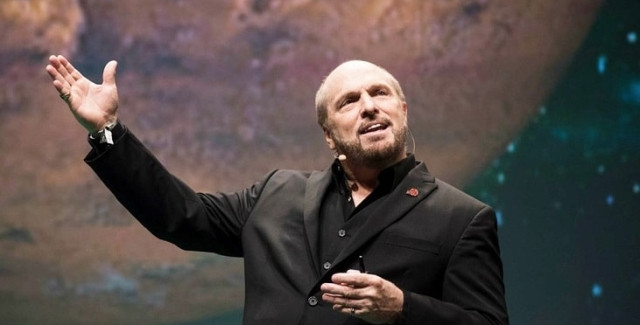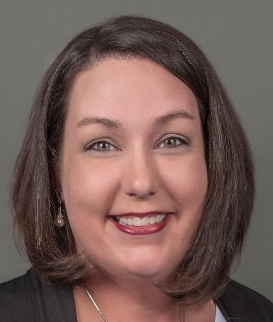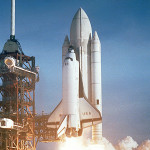Rick Tumlinson sees a lot of similarities between space enthusiasts and the crypto community. It’s not only that both seem likely to own a piece of Star Wars or Star Trek memorabilia, or because they count many PhDs within their ranks, or because the rest of the world believes they’re perhaps a little crazy, says Tumlinson.
“Both of us are engaged in democratization, both of us are engaged in trying to create a better future, and one of the great things we offer in space is a place to try it all out,” he told BREAKERMAG during the North American Bitcoin Conference in Miami in mid-January.
Now, he’s bridging the two in hopes of making sci-fi fantasies a reality. In early January, Tumlinson opened a new fund for space entrepreneurs; SpaceFund raised $2 million in its first two weeks, with a goal of hitting $50 million. The fund offers accredited investors SpaceFund Security Tokens that can be cashed out anytime after 365 days, as per Securities and Exchange Commission (SEC) rules. The funds earned from the sale of those tokens are used to invest in a pool of hand-picked, space-related startups. As the value of those companies changes (and hopefully, appreciates), the SpaceFund Security Token’s value fluctuates with it.
Rick Tumlinson

Tumlinson, who began his career as a lobbyist and activist fighting for the democratization of space before founding his own companies and social projects, likes to say he’s been in the “space space” since the 1980s. Through that time, he’s launched or contributed to wide range of other-worldly projects, including the Permission to Dream project, a commercial space company called MirCorp, and the X-Prize as a founding trustee. Tumlinson has been called to testify before the U.S. Congress six times on space-related topics, ranging from President Ronald Reagan’s National Commission on Space to the Senate Space and Technology Committee’s Moon, Mars and Beyond program before the late Senator John McCain.
He has also presented a Ted Talk on the urgent need to colonize other planets, and was named one of the 100 most influential people in the space industry by Space News magazine. “I was engaged in starting the whole field; we call it the ‘NewSpace revolution,’ and I’ve been fighting this fight for about 30 years,” he says.
On stage at the conference, Tumlinson says it’s only now that he finally sees a realistic path to an interplanetary future, thanks to the development of decentralized currencies and applications. The main entry-barrier for new space entrepreneurs, he says, is a lack of traditional funding, as projects tend to require more capital and patience than venture capitalists are willing to provide. (For perspective on how much space projects cost, SpaceX spends $62 million every time it launches a rocket.) Tumlinson believes the solution is tokenized securities.
"I've got liquidity and a community that inherently, at its very core, is future-oriented, revolutionary, and frankly, optimistic."
“The idea of liquidity is critical for us; it opens us up to a large pool of investors,” he says. “Now I’ve got liquidity and a community that inherently, at its very core, is future-oriented, revolutionary, and frankly, optimistic.” SpaceFund has not yet publicly announced any investments.
Even Tumlinson acknowledges that most extraterrestrial projects are moon-shots, and there are only a handful of true success stories to point to today. He believes, however, that if even a small fraction of the companies in his portfolio see success, they will pay significant dividends to investors.
“We’re the only U.S.-based SEC compliant security token fund [for space projects],” said Tumlinson, adding that the company is working with regulators to ensure compliance. The company is a registered Texas-based corporation, while the fund is set up as a Delaware-based limited partnership. “No ICO, not utility tokens: we’re not those guys,” says Tumlinson, adding that investors even have the option to receive traditional share certificates rather than tokens.
What sort of returns can investors expect from their investment? Tumlinson argues that the upside potential could be massive, as we don’t yet know what will be discovered once space exploration becomes accessible to those outside of NASA. For now, the fund is looking to back companies that can offer short-term profits. “If someone is working on a way of dealing with radiation damage to the human body in space, for example, that can be applied to people who run x-ray machines in hospitals now,” he says.
SpaceFund has also launched a “SpaceFund Reality Rating” system that evaluates prospective investments on a 9-point scale, rating for management, technology, and finance. “Because we have to do our due diligence, and there’s really nothing like this in the field,” he says.

The fund’s managing partner, Meagan Crawford, is also the cofounder of the Center for Space Commerce & Finance, which hosts the world’s longest-running space business plan competition.
“She’s in the middle of those dreamers who are becoming entrepreneurs and the makers of start-ups,” said Tumlinson, with Crawford nodding along beside him. “She knows them, she coaches them, she’s critiqued over 1,000 space business plans, so she knows that game and those people.”
Tumlinson, 63, says his passion for leaving the planet is common among those who grew up watching the Apollo landing, Voyager 1, and Star Trek. Jeff Bezos, Richard Branson, and Elon Musk are all enthralled by space and have invested in various space adventures. He senses a renaissance in space interest, pointing to Musk’s recent Tesla in space stunt and China’s successful landing on the far side of the moon as proof that we’re once again turning a corner on space exploration.
“2019 is going to be a really good year for space flight,” Crawford says. “You’re going to see Rocket Lab, you’re going to see Virgin, you’re going to see Stratolaunch, you’re going to see these projects that have been worked on for over a decade finally start to launch this year.”
WhetherSpaceFund maintains trajectory after liftoff, or burns to the ground in a fireball, remains to be seen. But at least now everyday people, not just billionaires, can invest in space’s financial opportunities.
This post has been updated: the fund is for accredited investors only.
